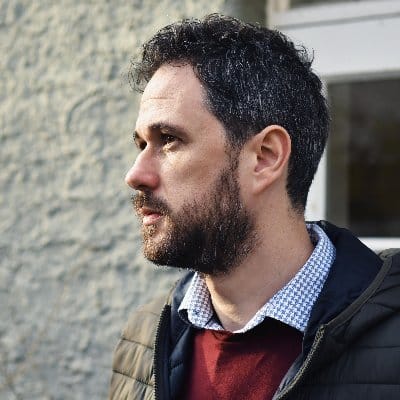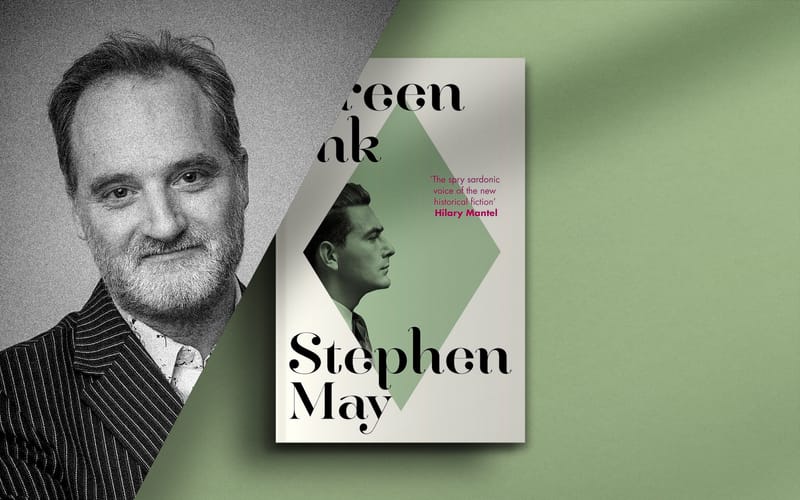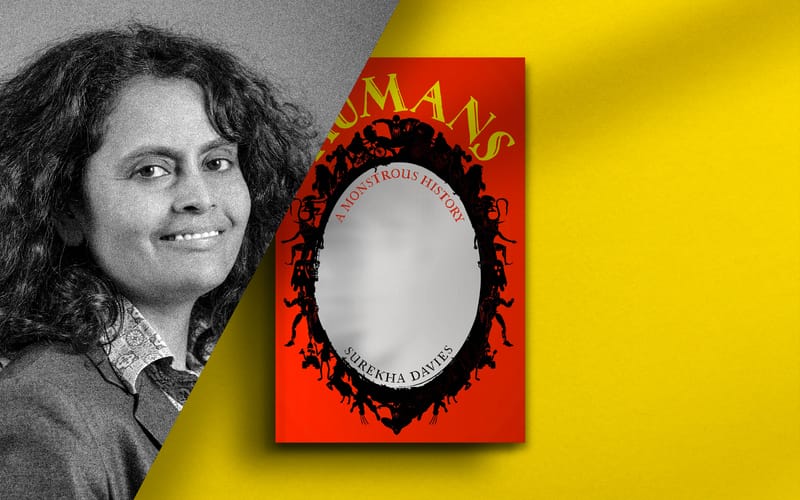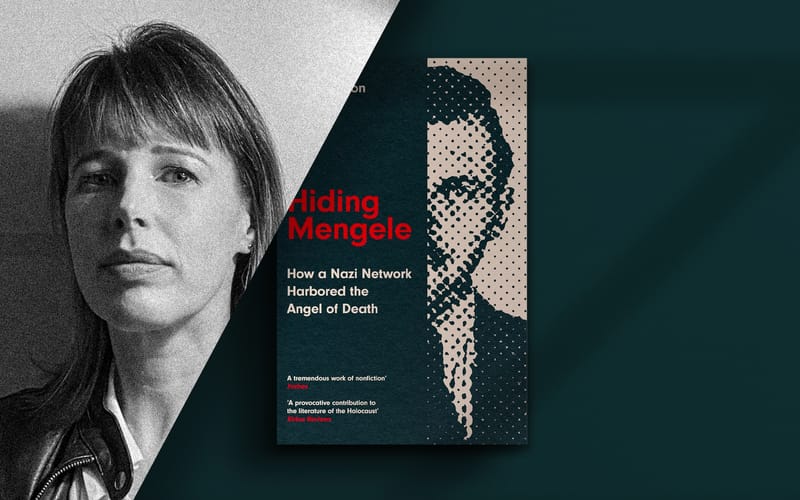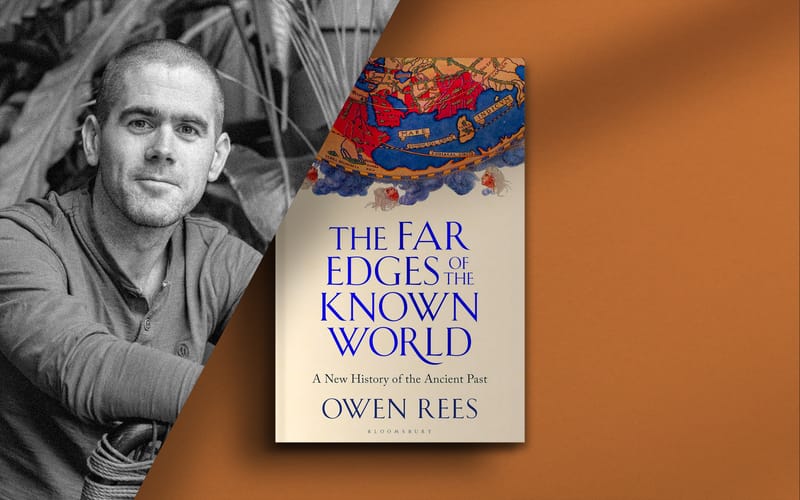The Day President Kennedy Didn't Die with Brad Meltzer
Brad Meltzer tells us about a failed assassination attempt that very nearly altered the course of history
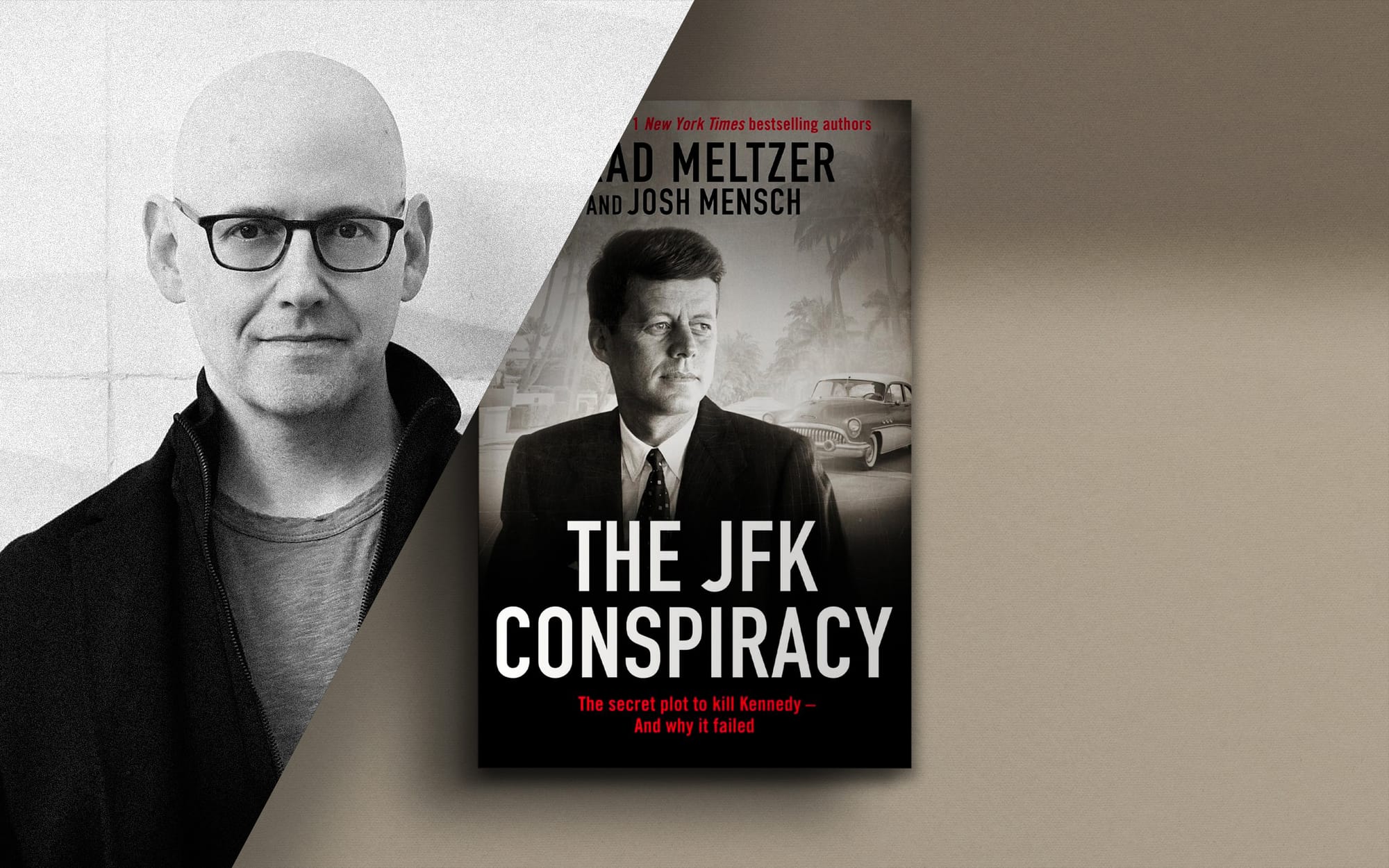
One day in December 1960 the president-elect, John F. Kennedy, was on his way to church in Florida when a car loaded with dynamite approached. What happened over the seconds that followed would shape political history.
Authors Brad Meltzer and Josh Mensch have used this incident to cast a fresh eye back on the lives of JFK and Jackie, 'America's first celebrity President and First Lady'.
In this interview Meltzer tells us about that fateful day and the story that led to it.
From John and Jackie's early relationship to the divisive election and the 'Camelot Administration' of 1961-3, The JFK Conspiracy is a book that resonates with America's fraught politics today.

Unseen Histories
Your story starts on 11 December 1960. Can you tell us what happened on that day?
Brad Meltzer
It’s Sunday morning in 1960, right after JFK is elected — and he’s heading to church. What he doesn’t know is a former postal worker named Richard Pavlick wants to kill him and has packed his car with seven sticks of dynamite.
Pavlick has followed Kennedy to Palm Beach, Florida because he thinks the security is weaker there. And he’s right.
So as Kennedy leaves his house, all the killer has to do is hit the trigger mechanism he’s built and boom will go to the dynamite. And what saves his life, I don’t want to ruin it, but it has to do with Jackie and is part of one of the craziest JFK stories you’ve never heard.
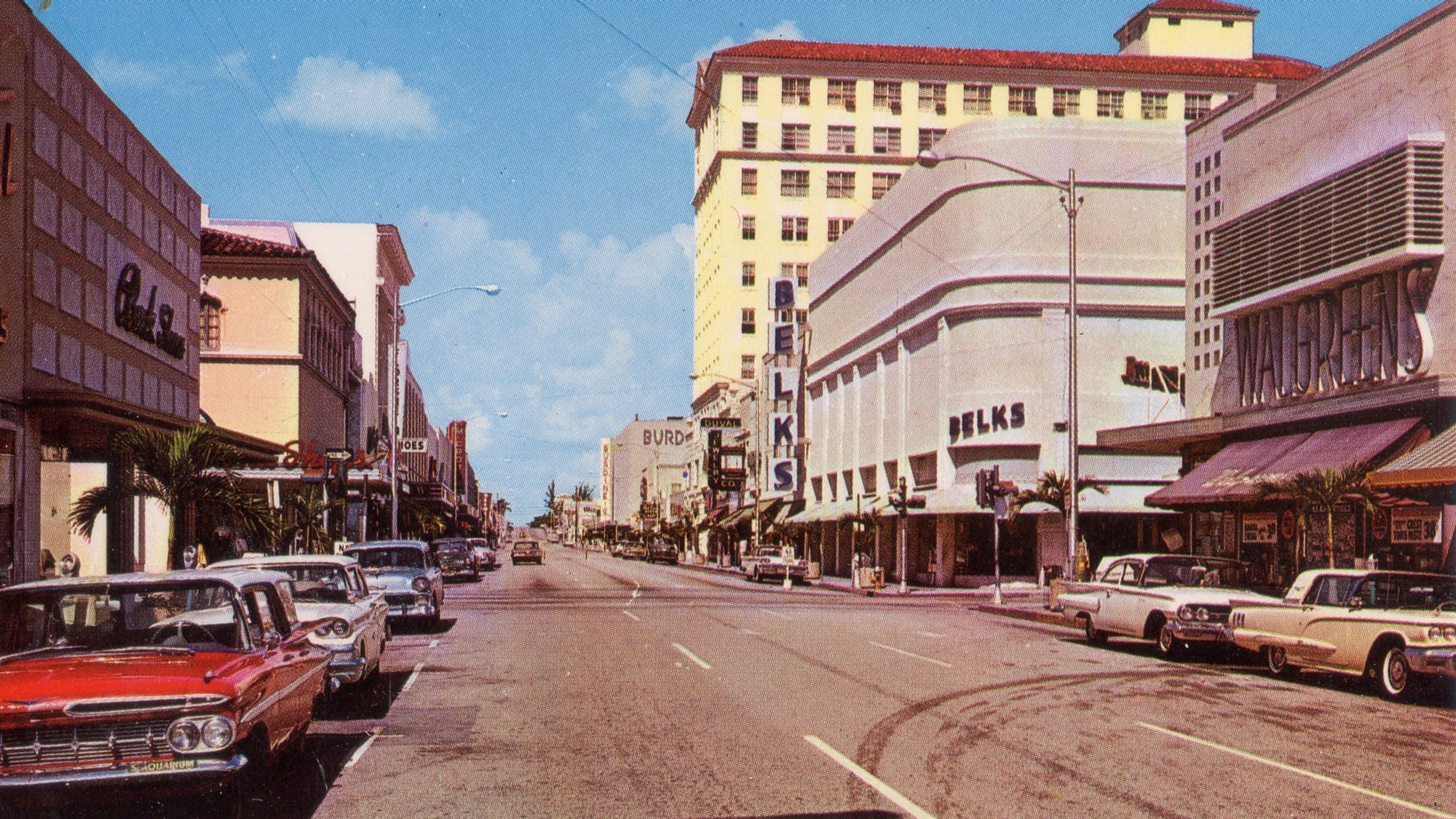

Unseen Histories
How was this story reported at the time and why are we not familiar with it today?
Brad Meltzer
The story of the assassination attempt is all set to break in the afternoon editions of the 16 December newspapers. Unexpectedly, though, the news cycle spins in a different direction.
At 10:27 a.m. that morning, two large passenger airliners collide in the air over New York City during a heavy snowstorm, killing all but one of the 127 passengers onboard. The only survivor is an eleven-year-old boy. The tragic crash dominates the news, and the Pavlick story fades from view.

Unseen Histories
JFK and his 'Camelot' administration are such a huge part in American political history. Has this new view of him allowed you to examine them afresh?
Brad Meltzer
As we were writing the book, I kept asking, 'When do they start calling it Camelot?' And then I finally discovered this: Camelot wasn’t used until after JFK was killed.
After the assassination, Jackie granted one interview, exclusively to Life magazine. She invited the reporter to her house — and told him this exclusive story. That when Kennedy's back was hurting in the White House, and he was in pain, she would put on this record for him, one of his favorite songs, about a place called Camelot.
Jackie started her career as a reporter. She was a member of the press, she was hounded by the press, but make no mistake, she was a master of the press. She’s the one who put that word into the lexicon — writing JFK‘s legacy before anyone else could and that’s why we call it Camelot.
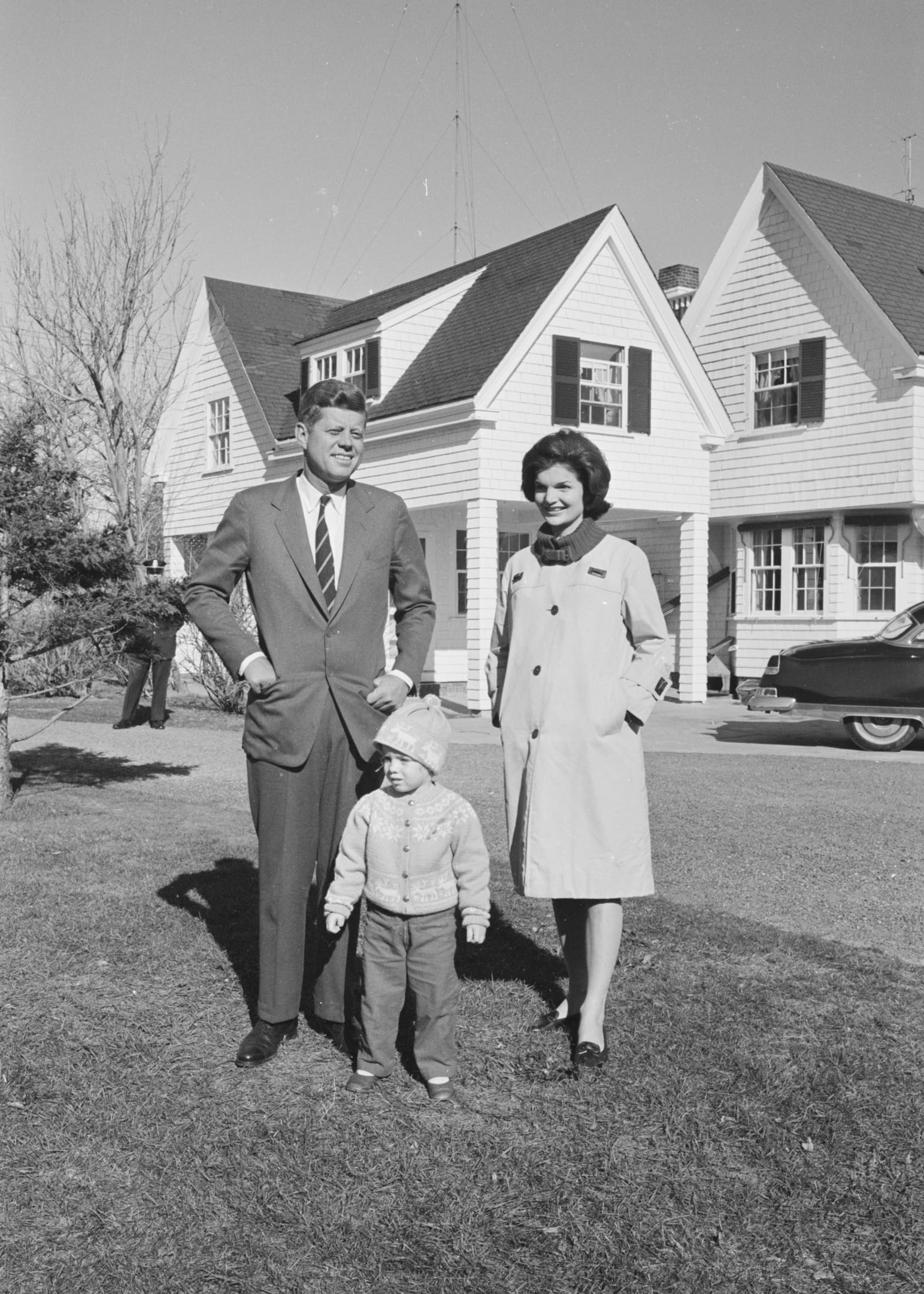

Unseen Histories
While opening at a precise historical moment, on 10 December, your story then roams back through time to other specific moments in JFK’s life. What guided your choice of scenes?
Brad Meltzer
First, we knew this had to be a story about JFK and Jackie. The problem is, we’ve reduced them to cliches. Kennedy is handsome and suave. Jackie is full of class and fine taste.
Those descriptions don’t do them justice. Those are simple caricatures. So we wanted stories that show you them as real people. Not perfect people. But yes, flawed people who are amazing and strong and cowards and weak and reckless and full of unleashing more hope than any President and First Lady since.
So Kennedy's Second World War stories came in and his marital affairs became relevant. He’s a complex man living in a complex time.

Unseen Histories
This age – one of Cold War tensions, stiff formalities, cigarette smoke and tailored suits — has so much glamour associated with it. Was capturing this aesthetic part of the draw for you?
Brad Meltzer
No. I didn’t grow up with that, so there’s no glamour in cigars and stiff formalities.
Here in the US, if anything, that’s a façade clear as can be. For me, it was always about the people. Their wants and desires and most important, their actions.
I can’t get in JFK’s or Jackie’s brains. But we show you where they were and how they treated each other. As I tell my kids, don’t judge people by their words. Judge them by their actions.
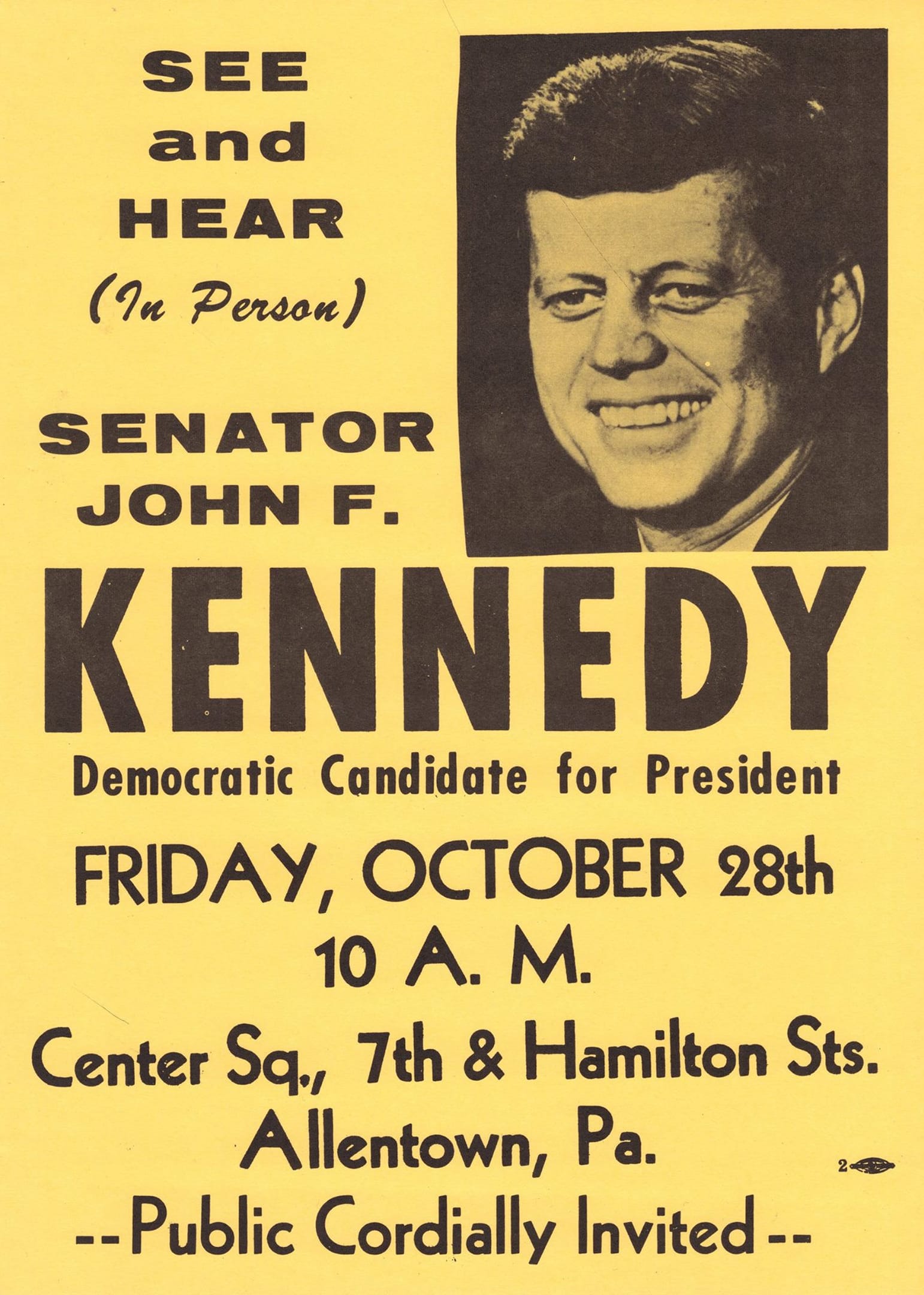

Unseen Histories
Can you tell us a little about Richard Pavlick of Vermont? What were his obsessions in life?
Brad Meltzer
He’s a pretty angry and lonely man, which means he fits the most basic of assassin profiles.
When you talk to the Secret Service, they’ll tell you that presidential assassins fit into two main categories: there are howlers and there are hunters. Howlers threaten by sending scary notes and calling in bomb threats, but the good news is, they rarely follow through.
They just want attention—for them, howling and making noise is enough. It’s different with hunters. Hunters act on it. They research, prepare, plot – and follow that path to a goal. Howlers aren’t interested in hunting. And hunters aren’t interested in howling.
Needless to say, from John Wilkes Booth to Lee Harvey Oswald, those assassins were hunters. Richard Pavlick thinks he’s a hunter, but he’s got a bit too much howler in him. That’s why he gets caught.

Unseen Histories
As well as the compelling plot, the story happens at a loaded time in US history: between the fiercely-fought Presidential Election of 1960 and the inauguration of the following January. Does this setting add a distinctive flavour to your story?
Brad Meltzer
Venom and hatred are not new features in politics. During Kennedy's time, there was enormous bigotry towards Catholics, a group the Ku Klux Klan hated with the same fervor as Jews and Blacks. At the same time, religious leaders like Billy Graham and Norman Vincent Peale did not want a Catholic in the White House and both covertly and overtly tried to thwart JFK’s candidacy.
It was this environment that animated Pavlick’s bigotry. Luckily, there were forces at work —namely Jackie Kennedy—that not only stopped Pavlick but served as a prelude for the rest of Kennedy's presidency and history.

Unseen Histories
JFK is clearly your lead character, but his wife Jackie is prominent too. What did you learn about her during the course of your research/writing?
Brad Meltzer
Jackie is unquestionably one of the stars of this book. And we don’t pull punches: we document JFK's affairs. We show that when Jackie gave birth and was hemorrhaging, he was nowhere to be found — he was on a plane to Florida. And she is the rock. She’s the one holding this marriage together.
To me, JFK and Jackie are our first celebrity President and First Lady. And I mean celebrity in that Hollywood-beautiful-rich-famous-have-it-all way. Since then, we in America have been chasing that as an American Dream.
For some, the Reagans represented that, for others the Obamas, and others think it’s Trump. But they’ve all been cosplaying the Kennedy presidency.
Yet here’s the thing about Camelot. It was a hollow pursuit. It never existed. The shiny glossy surface on the outside often obscures reality. Camelot wasn’t real. Yet what is real is hope. That’s what JFK did better than anyone.

Unseen Histories
You write with such an addictive, pacy storytelling style. Can you tell us how you developed this approach?
Brad Meltzer
I’m a thriller writer at heart. That’s just how I know to tell a story.
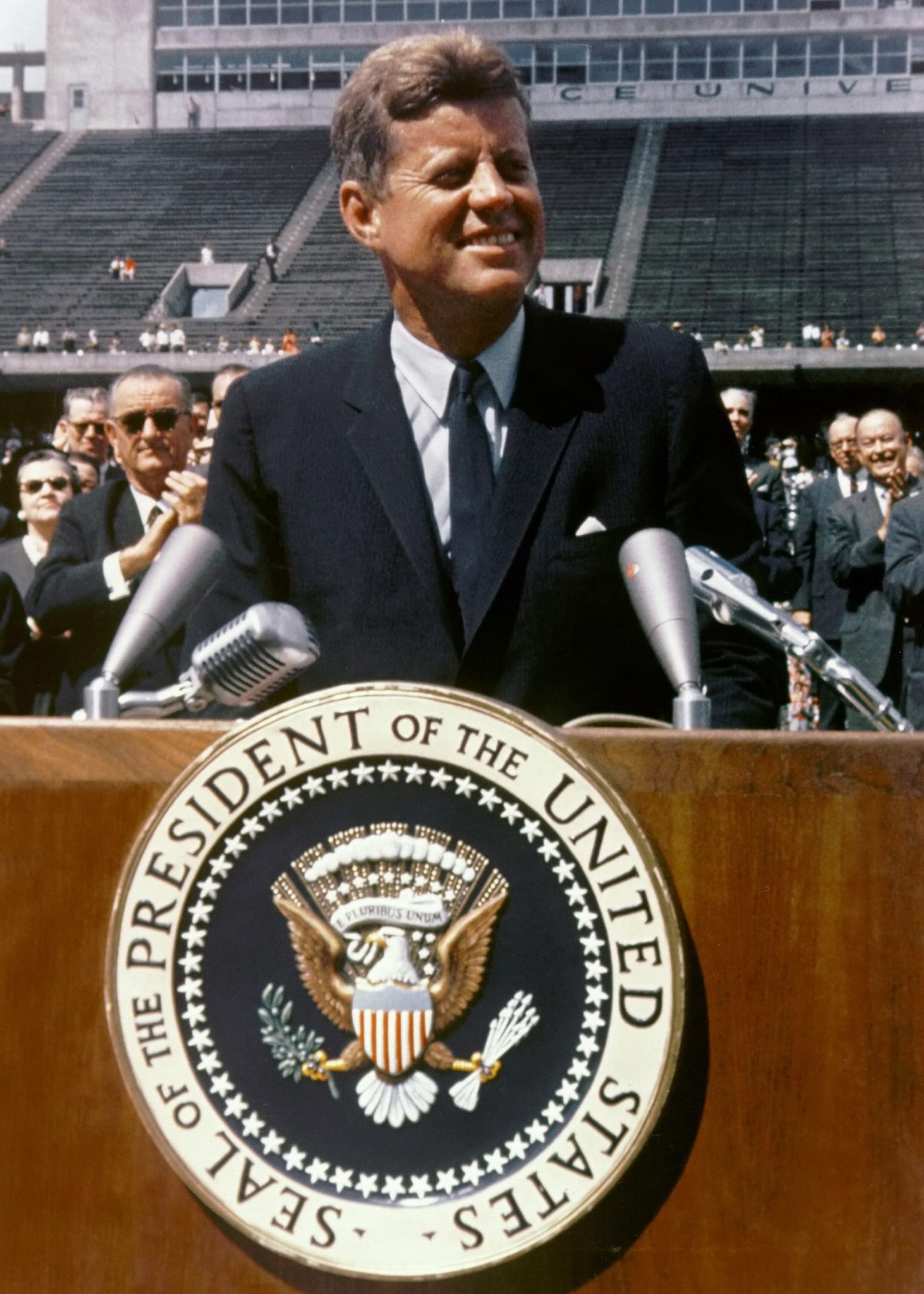

Unseen Histories
The question ‘what if’ infuses the book. How different do you think the history of the 1960s might have been had events gone differently on that December day?
Brad Meltzer
That’s a tricky one. Would civil rights been pushed earlier if LBJ takes over in 1960? Maybe. Would we have avoided the Cuban Missile Crisis or a different ending for thre Bay of Pigs? Maybe.
That’s all speculation. The only thing I believe for sure is that JFK unleased a new level of hope in our country. And we would’ve really lost something if we lost that.
Unseen Histories
Does this story of political strife and violence have a particular piquancy in today’s divided America? What lessons would you like today’s readers to take from it?
Brad Meltzer
The 1960 presidential election was the closest in the twentieth-century, bitterly fought, and whatever side you were on, you thought the other side were complete and utter morons. Sound familiar?
Kennedy’s Catholicism was extremely controversial, leading to a race that divided the U.S. in half. But after winning, Kennedy sought to bring the entire country together in his inaugural address. And that’s what real leaders do.
As always, leadership is not about being in charge, it’s about taking care of those in your charge— the best leaders unite us rather than divide us 𖡹
He is also the host of the History Channel TV shows: Brad Meltzer's Decoded and Brad Meltzer's Lost History.

The JFK Conspiracy: The Secret Plot to Kill Kennedy, And Why It Failed
Ithaka, 13 February, 2025
RRP: £25 | ISBN: 978-1785124488
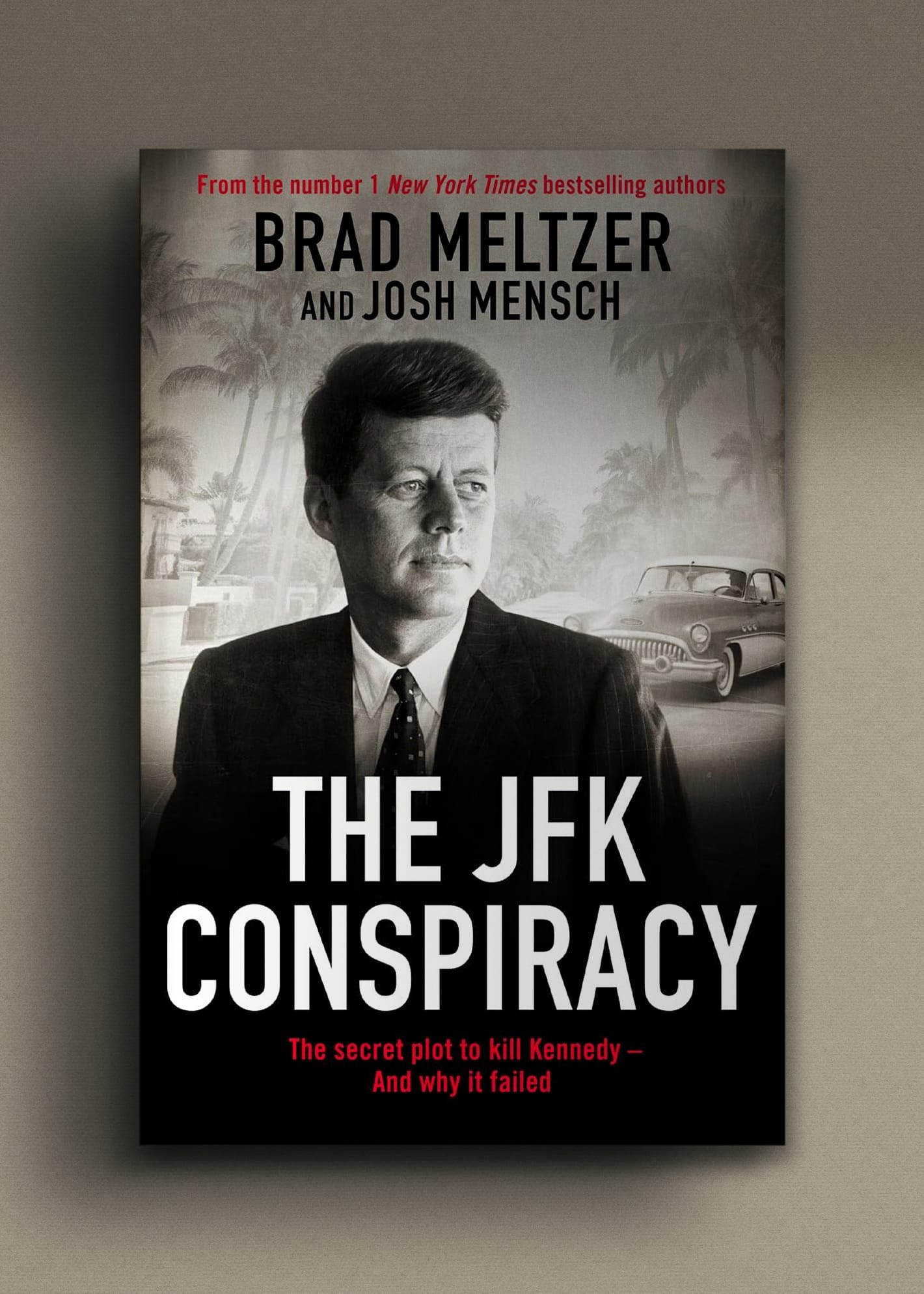
"Fascinating"
– The Guardian
A gripping account of the little-known plot that could have put end end to JFK's historic presidency - before it even began.
From the New York Times bestselling authors of The Nazi Conspiracy comes a true, little-known story about the first assassination attempt on John F. Kennedy, right before his inauguration.
Kennedy was infamously assassinated in 1963, ending his historic presidency. But what most people don't know is that JFK's story almost ended before it began - at the hands of a disgruntled sociopathic loner armed with dynamite.
On December 11, 1960, shortly after Kennedy's election and before his inauguration, retired postal worker, Richard Pavlick, waited in his parked Buick on a quiet street in Palm Beach, Florida. Pavlick knew when Kennedy would leave his house and where he was going. From there, Pavlick had a simple plan - one that almost changed the course of history.
Written in the page-turning style that is the hallmark of Brad Meltzer and Josh Mensch's bestselling series, this is a slice of history vividly brought to life. Meltzer and Mensch are at the top of their game with a brilliant exploration of what could've been for one of the most compelling leaders of the 20th century.

With thanks to Florence Philip

